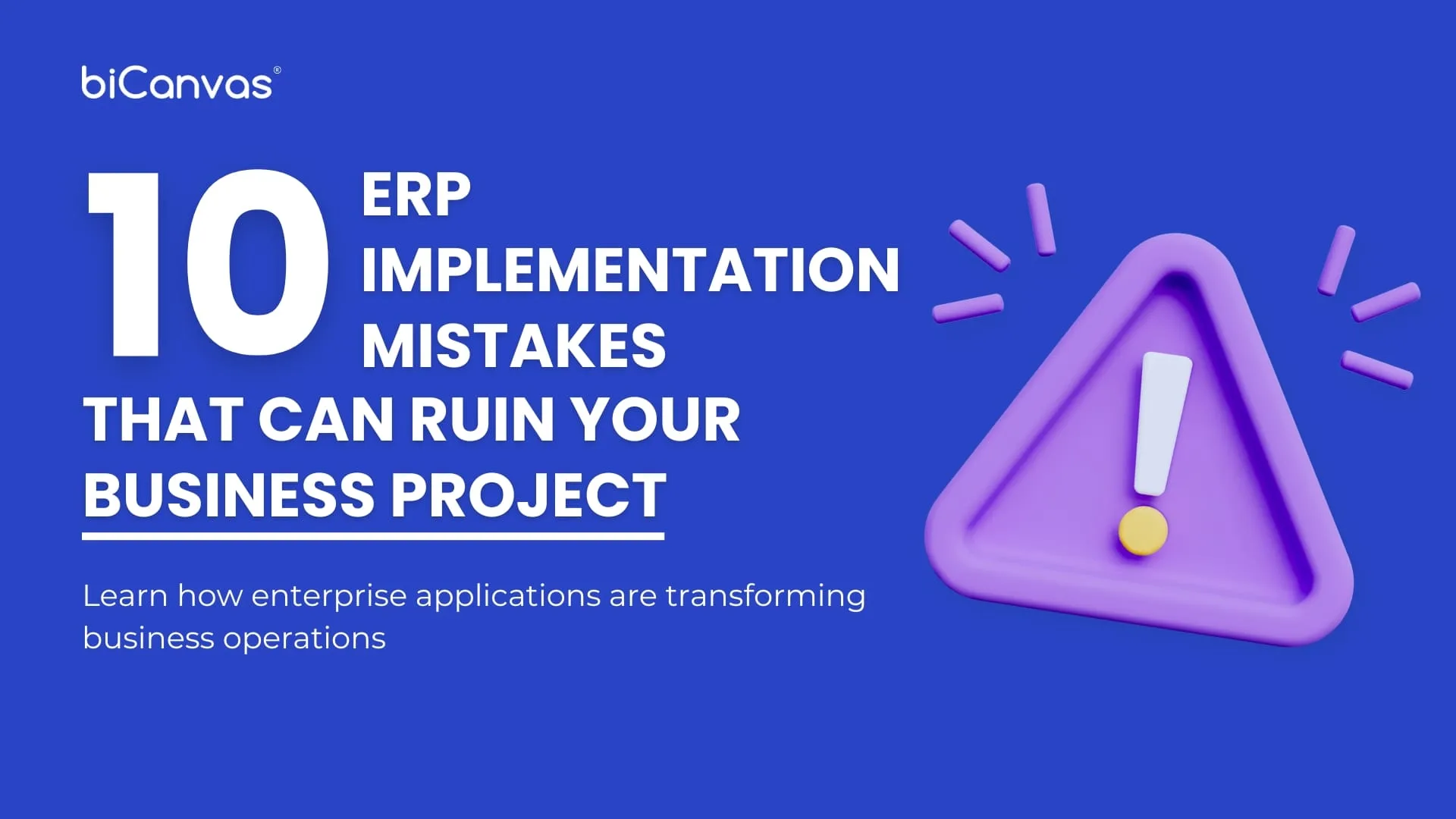10 ERP Implementation Mistakes That Can Ruin Your Business Project
As an ERP system implementation is a big deal for every business, it has its own set of challenges that can either break or make the project. When companies jump headfirst into ERP without knowing about the potential risk, it can lead to catastrophic mistakes. Poor planning, lack of training, or selecting the wrong solution will cause delays and process inefficiencies.
An unsuccessful ERP implementation not only wastes time and money but also impacts the workflow of the business. The bright side is that plenty of those mistakes are preventable with proper strategic planning. In this blog post, we will briefly explain ten absolute must-avoid mistakes that cause ERP failure and how to avoid them for a successful ERP.
Why Do ERP Implementations Fail?
The ERP implementation process is typically organized around three major steps: bringing in the new software, migrating data from earlier systems, and training employees. Failure occurs when businesses are unaware of all the potential risks that can arise during each stage.

1. No Clarity in the Desired Outcome
Using an ERP system without clear objectives is like traveling without a GPS. Without goals like improved reporting, automation, or cost reduction, it's difficult to track success. Companies may end up with an ERP that doesn?t align with their needs.
How to avoid it: Set clear, measurable goals and ensure the entire team understands them.2. Opting for the Inappropriate ERP System
Every business has different requirements. Choosing the wrong ERP?one that lacks industry-specific features?can lead to frustration and waste of resources.
How to avoid it: Understand your business needs, get product demos, and select an ERP that aligns with your industry.3. Ignoring Employee Training
Even the best ERP system will underperform if employees don?t know how to use it. Poor training leads to inefficiencies and poor adoption.
How to avoid it: Offer hands-on training and ongoing support.4. Poor Data Migration
Data migration errors?like duplicates, missing fields, or wrong entries?can break processes and reporting.
How to avoid it: Audit, clean, and validate your data before migration.5. Underestimating Implementation Time and Costs
ERP implementation is not quick or cheap. Underbudgeting or unrealistic deadlines often result in rushed work and poor outcomes.
How to avoid it: Set a realistic budget and schedule while preparing for unexpected delays.6. Absence of Executive Involvement
Lack of leadership can slow down projects and lower employee engagement.
How to avoid it: Involve top-level management from the beginning to promote alignment and momentum.7. Customizing Too Much
Over-customization makes future updates difficult and can increase long-term costs.
How to avoid it: Use standard ERP features as much as possible. Customize only when absolutely necessary.8. Not Testing Properly
Skipping proper testing leads to system bugs, poor performance, and data issues at launch.
How to avoid it: Conduct thorough user acceptance testing (UAT) and data validation across scenarios before launch.9. No Post-Implementation Plan
ERP success doesn?t stop at launch. Businesses often fail by not having a strategy for ongoing evaluation, support, and improvement.
How to avoid it: Plan for long-term monitoring, feedback, and ERP optimization.10. Ignoring Technical Issues and Security
Poor cybersecurity and unhandled tech glitches can result in data loss or system downtime.
How to avoid it: Regularly audit systems, implement security protocols, and train staff on cybersecurity best practices.Implement Your ERP With the Help of Our Experts
biCanvas ERP offers complete support during implementation. From online sessions and one-on-one training to 24/5 expert assistance, we help your team understand and utilize ERP efficiently. Our implementation strategy ensures a smooth, scalable transition tailored for your business success.
With proper planning and avoiding these common mistakes, you can set your ERP journey on the path to long-term success. ERP isn't just a system?it's a strategic business transformation tool.
Conclusion
ERP implementation is a considerable step, and while it presents challenges, it offers immense long-term benefits when done right. Avoiding these 10 common mistakes?from poor planning to ignoring security?will ensure your ERP project stays on track and supports your business growth.
Ready to deploy ERP without errors? Discover how biCanvas ERP simplifies implementation and empowers your team. Contact us today for a consultation.













